Excerpt from Parson Austen’s Daughter
 Although Helen Ashton’s Parson Austen’s Daughter is a novel, it’s based on historical facts (mostly letters and family records) of Austens and a bit of Lefroys. As I said before, I must remind myself that most of the dialogs did not take place, or if it did, they were not in the same verbatim sentences/words. Nonetheless, as the book is out of print, I decide to copy several pages in relation to Tom Lefroy (duh!). The article will be in 2-3 parts, and here’s the first one, taken from the 1968 edition. Enjoy!
Although Helen Ashton’s Parson Austen’s Daughter is a novel, it’s based on historical facts (mostly letters and family records) of Austens and a bit of Lefroys. As I said before, I must remind myself that most of the dialogs did not take place, or if it did, they were not in the same verbatim sentences/words. Nonetheless, as the book is out of print, I decide to copy several pages in relation to Tom Lefroy (duh!). The article will be in 2-3 parts, and here’s the first one, taken from the 1968 edition. Enjoy!
But down in the country all that [French Revolution &c] seemed faint and far off to Parson Austen’s younger daughter and her friends, for this was the gay time of the year when the Assemblies were held in
The handsome young Irishman was always in and out of Steventon Parsonage in that December, 1795, when Jane was just twenty-one. He rode over most mornings, a fine figure on a good horse; sometimes Mrs. Lefroy or her girl Lucy came with him, more often he came alone to borrow a book, to try over some music, to engage Miss Jane for the first two dances at the ball which the Bigg-Withers were giving in January at Manydown. He was free of the girls’ dressing parlour and came there to talk or to make music. He had been astonished to find that the Austen girls did not ride and had expected to meet them in the hunting-field. In
 If he could not ride with Jane, he could sing duets with her. He had a very agreeable tenor voice, musical in speech as in singing, as soft as Irish weather; she had a pretty light untrained soprano and played the pianoforte with delicate precision. How Sweet in the Woodlands, they tried, a hunting song which pleased and amused him; then Jane warbled Ask if the damask rose be sweet, a pretty melody from Mr. Handel’s admired oratorio, Susannah. She had another lament, How gentle was my Damon’s air, and songs by Arne and Dibdin which suited her voice. They went through a book of canzonets for two voices by Mr. Jackson of
If he could not ride with Jane, he could sing duets with her. He had a very agreeable tenor voice, musical in speech as in singing, as soft as Irish weather; she had a pretty light untrained soprano and played the pianoforte with delicate precision. How Sweet in the Woodlands, they tried, a hunting song which pleased and amused him; then Jane warbled Ask if the damask rose be sweet, a pretty melody from Mr. Handel’s admired oratorio, Susannah. She had another lament, How gentle was my Damon’s air, and songs by Arne and Dibdin which suited her voice. They went through a book of canzonets for two voices by Mr. Jackson of
Cassandra, stitching away unheeded in the window seat at a flannel petticoat for one of her old village women, kept her eyes demurely on her work, but still noted how earnestly the stranger looked at her sister. “What’s this dull town to me?” sang Jane, too gaily for the plaintive words. She laughed in the young man’s serious face, cried out, “That’s too sad a tune for a fine winter’s morning,” and began to rattle off the racing jig called The Irish Washerwoman, just to plague him. They read, they talked, they played and sang, they were always sparring. She rallied him unmercifully about his singing, about a white coat he had, about the manners and customs of the Irish. Gentle Cassandra sometimes thought that she teased him more than was prudent; she had learnt Eliza’s lessons of coquetry too well, she would frighten him away with her sharp tongue. He seemed a reluctant lover, unwilling to come, unable to keep away. Cassandra wondered what held him back. She spoke of the matter timidly to Jane, but her sister only answered lightly, “I must fight with what weapons I have.”
Pic 1: the cropped image of Jane Austen's sketch by Revd. James Stanier Clarke, 1815
Pic 2: the young Tom Lefroy, from Carrigglas website
Pic 3: Marianne Dashwood playing piano, Sense & Sensibility, from Jane Austen Centre, UK
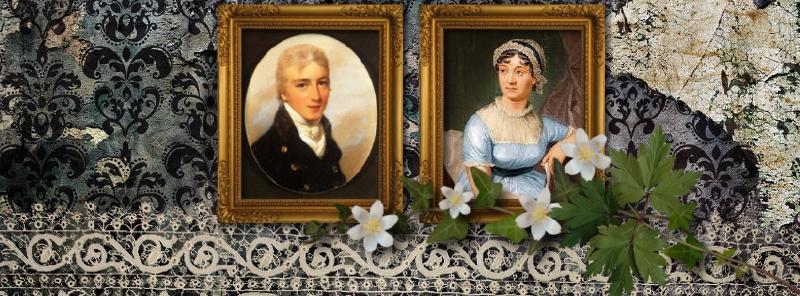

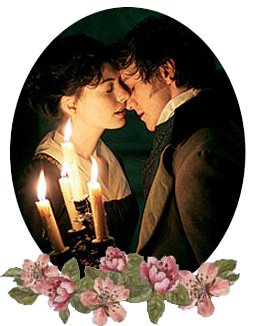















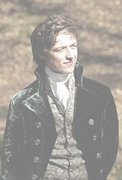











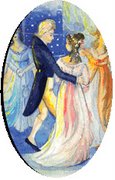
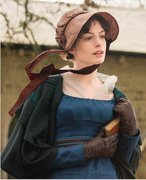
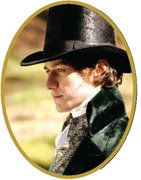











No comments:
Post a Comment